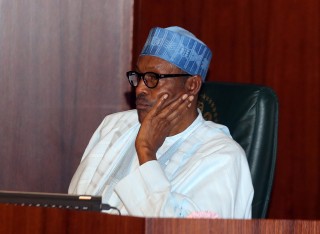Severely hit by the fall in global oil prices, Nigeria has endured a sharp fall in its currency value and currently faces the possibility of a third consecutive quarter of negative growth. The exchange rate peg instituted by the Central Bank of Nigeria last year only exacerbated the crisis as foreign investors began to divest their exposure in the country and the exchange rate plummeted. Even as the policy has been revered the exchange rate plummet amidst the persistent shortage of supply of the US dollar.
Nigeria officially fell into recession as GDP shrank by 2.06 percent year-on-year in the second quarter of 2016, compared to a 0.36 percent drop in the previous period. Inflation rate as of August stands at 17.6 percent, which marks the ninth consecutive rise in inflation since December 2015.
Below is the Ventures Africa Weekly Economic Index, giving you a glimpse into the recent activities in Nigeria’s economy as well as changes that could affect the economy:
Exchange rate

After weeks of sustained appreciation, the naira stabilised at N455 to a dollar prior to its depreciation on Wednesday. It exchanged at N467 to the dollar after it traded at N455, and N460 for a couple of hours on Wednesday. The naira closed the week at N468 to the dollar, a 2.9 percent depreciation from N455 at the start of the week. Pound sterling and euro closed at N560 and N505, respectively.
At the Bureau De Change (BDC) window, the Nigerian currency sold at N385 to a dollar, the Central Bank of Nigeria (CBN) controlled rate, while the pound sterling and the euro closed at N553 and N500, respectively.
What happened to the price of crude oil?

The price of crude oil has hovered around the $50 mark over the last few weeks but the price of Brent Crude oil fell 4.28 percent over the week to close at $49.31. WTI crude even saw a bigger drop in price by 4.9 percent as it closed at $48.41 this week. This is the first time the price of oil has fallen over a weekly span, it had enjoyed 5 consecutive weeks of gains and the longest weekly winning streak since April.
Nigerian Stock Market Summary

The Nigerian Stock Exchange all share index rose 0.21% on Friday, compared to the previous trading day, and market capitalization at the close of trading was N9,375,024,299,361.48. However, the index fell by 0.18 percent over the week
Highlights of Friday’s trading session include
- NSE All Share Index was 27,294.21 up 0.21%.
- Market capitalization closed at N9.38 trillion.
- Volume of shares traded was 148,448,272.00 unit
Below is a snapshot of relevant economic indicators
- GDP Growth Rate – 2.06% (2016Q2)
- Inflation Rate – 17.9% ( September 2016)
- Unemployment rate – 13.3% (2016 Q2)
- Underemployment rate – 19.3% (2016 Q2)
- MPR – 14% (July 2016)
- CRR – 22.5% (July 2016)
- Liquidity ratio – 30%








